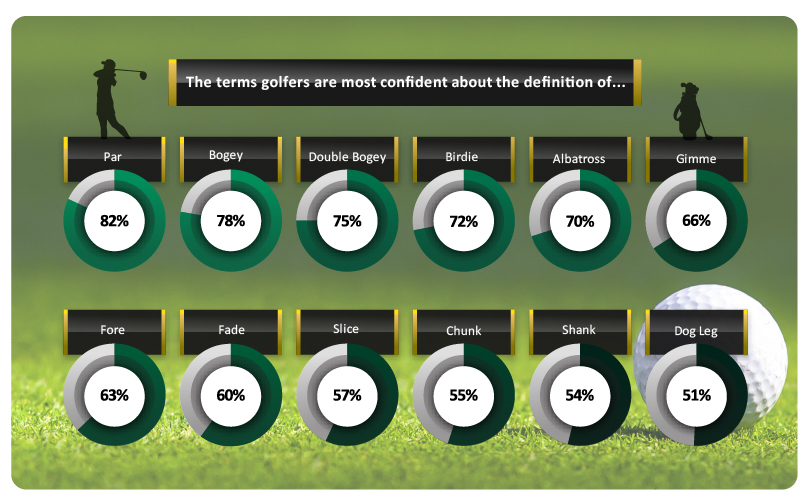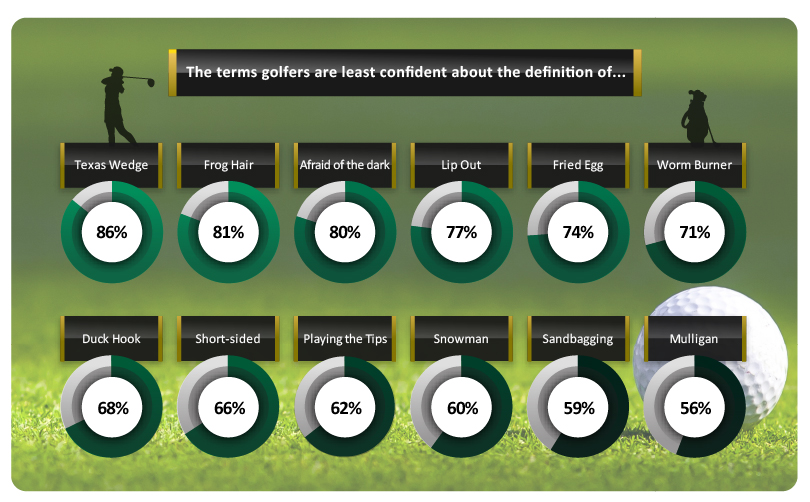Do you know your Texas Wedge from your Sandbagger, and your Mulligan from your Snowman?
While these are familiar terms for most keen golfers, the lexicon of golf is often considered a foreign language to those just starting out in the game, and those new to golf’s somewhat idiosyncratic terminology.
To find out just how shallow – or deep – our knowledge of golf’s most common terms have become embedded into English vernacular, GolfSupport.com surveyed 686 ‘avid amateur golfers’ to see how confident they are with the definitions of a range of golf words and phrases. The participants were asked to state which they felt most and least confident about the definition of.
Unsurprisingly, the top five terms amateur golfers are the most confident with the definition of were related to scoring, with Par (82%), Bogey (78%), Double Bogey (75%), Birdie (72%) and Albatross (70%), all coming out with high recognition scores.
Surprisingly, only 66% felt confident about the definition of the word ‘gimme’, although that’s probably not so shocking given the varying length at which they are often offered.
Perhaps more worrying was that only 63% of survey participants were confident of the meaning of the word ‘Fore’, the word that should be used to warn fellow golfers of an incoming ball.
Just how ‘avid’ those questioned were about golf is a moot point, especially when it came to their knowledge of terms used to describe types of shot – Fade (60%), Slice (57%), Chunk (55%) and Shank (54%).
At the other end of the scale, 86% felt the least confident defining ‘Texas Wedge’ (the use of a putter from off the green). Other phrases which leave some golfers in the dark included Short-sided (66%), Playing from the Tips (62%), Snowman (60%), Sandbagging (59%) and Mulligan at 56%.



